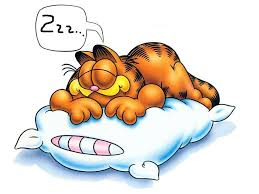 It is well known that sleep is fundamental for our health and well-being, however due to various lifestyle and physiological factors, 33-45% of Australian adults suffer from poor quality and inadequate sleep while insomnia affects around 20% of adults in Australia. 3
It is well known that sleep is fundamental for our health and well-being, however due to various lifestyle and physiological factors, 33-45% of Australian adults suffer from poor quality and inadequate sleep while insomnia affects around 20% of adults in Australia. 3
The Australian Sleep Association defines insomnia as a chronic and debilitating disorder relating to a difficulty with:
- Sleep initiation: Sleep onset takes more than 30 minutes and/or 8
- Sleep maintenance: Being unable to maintain sleep (being awake for more than 30-45 minutes) and/or 8
- Early termination: Waking earlier than intended and not being able to return to sleep. 8
Insomnia has been linked to a myriad of health complaints including reduced cognitive function, anxiety and depression. It may also contribute to several psychiatric and medical conditions including cardiovascular disease and hypertension. 9, 10
In addition to this, mental health problems (depression and anxiety) and physical health issues (pain and breathing difficulties) are thought to be the primary causes of sleep problems. 11, 12

Insomnia and Inflammation
A common underlying factor associated with insomnia and its concomitant conditions is inflammation. Recent evidence has revealed shorter sleep duration (<6 hours per night), poor sleep continuity and quality to be associated with higher levels of inflammatory markers (IL-1β, IL-6 and TNF-α) suggesting that insufficient or disturbed sleep may play a role in the upregulation of pro-inflammatory cytokines. 12-14 Chronic insomnia has been shown to disrupt the circadian release of IL-6 and TNF-α resulting in excessive daytime sleepiness, contributing to conditions such as sleep apnoea and narcolepsy. 12, 15
Stress and Inflammation
These same pro-inflammatory cytokines (IL-1, IL-6, TNF-α) have also been shown to activate the hypothalamic-pituitary-adrenal (HPA) axis, stimulating glucocorticoid release, further exacerbating symptoms of stress, sleeplessness, and mood disorders. 16-18
Chronic stress, via excessive release of glucocorticoids (cortisol), can exacerbate symptoms of insomnia due to the influence of the adrenal glands on the rhythmic release of hormones, this causes dysregulation of the circadian rhythm altering normal sleep cycle. 19
In healthy persons, reductions in cortisol, corticotropin-releasing hormone (CRH) and a rise in growth hormone (GH) supports sleep onset and maintenance. During times of chronic stress, abnormal HPA axis and sympathetic nervous system (SNS) activation causes disruptions in GH, CRH and adrenocorticotropin hormone (ACTH) release which disrupts the normal diurnal pattern. This results in altered cortisol expression in the evening hours and initial phases of sleep, resulting in sleep fragmentation, raising cortisol even further. 19, 20
Natural Treatments to Reduce Inflammatory Stress and Support Healthy Sleep
As multiple physiological and psychological factors can contribute to insomnia, our practitioners apply a broad spectrum treatment approach which addresses these factors. Furthermore, considering herbs and nutrients with a multitude of beneficial effects in these areas have shown positive results. For more information about what impacts sleep and how our body is affected when we don’t get enough quality sleep.
Probiotics
- Studies have shown probiotics may have a modulating effect on the HPA axis, reducing symptoms of stress. 2
- A probiotic [available from qualified Naturopaths] taken for 30 days was shown to be beneficial in improving psychological symptom scores, reducing psychological distress scores and decreasing 24 hour urinary free cortisol, showing a beneficial effect on general signs of stress, mild anxiety and low mood. 5

References
- Savage KM, Stough CK, Byrne GJ, Scholey A, Bousman C, Murphy J, et al. Kava for the treatment of generalised anxiety disorder (K-GAD): study protocol for a randomised controlled trial. Trials. 2015;16:493.
- Eutamene H, Bueno L. Role of probiotics in correcting abnormalities of colonic flora induced by stress. Gut. 2007;56(11):1495-7.
- Adams R, Appleton S, Taylor A, McEvoy D, Antic N. Report to the sleep health foundation 2016 sleep health survey of Australian adults. The University of Adelaide The Adelaide Institute for Sleep Health. 2016.
- Bannai M, Kawai N. New Therapeutic Strategy for Amino Acid Medicine: Glycine Improves the Quality of Sleep. Journal of Pharmacological Sciences. 2012;118(2):145-8.
- Messaoudi M, Lalonde R, Violle N, Javelot H, Desor D, Nejdi A, et al. Assessment of psychotropic-like properties of a probiotic formulation (Lactobacillus helveticus R0052 and Bifidobacterium longum R0175) in rats and human subjects. Br J Nutr. 2011;105(5):755-64.
- Bannai M, Kawai N, Ono K, Nakahara K, Murakami N. The effects of glycine on subjective daytime performance in partially sleep-restricted healthy volunteers. Front Neurol. 2012;3:61.
- Yamadera W, Inagawa K, Chiba S, Bannai M, Takahashi M, Nakayama K. Glycine ingestion improves subjective sleep quality in human volunteers, correlating with polysomnographic changes. Sleep and Biological Rhythms. 2007;5(2):126-31.
- Australian Sleep Association. Insomnia.
- Ford ES, Cunningham TJ, Giles WH, Croft JB. Trends in insomnia and excessive daytime sleepiness among U.S. adults from 2002 to 2012. Sleep Med. 2015;16(3):372-8.
- Sateia MJ, Buysse DJ, Krystal AD, Neubauer DN, Heald JL. Clinical Practice Guideline for the Pharmacologic Treatment of Chronic Insomnia in Adults: An American Academy of Sleep Medicine Clinical Practice Guideline. J Clin Sleep Med. 2017;13(2):307-49.
- Arroll B, Fernando A, 3rd, Falloon K, Goodyear-Smith F, Samaranayake C, Warman G. Prevalence of causes of insomnia in primary care: a cross-sectional study. Br J Gen Pract. 2012;62(595):e99-103.
- Milrad SF, Hall DL, Jutagir DR, Lattie EG, Ironson GH, Wohlgemuth W, et al. Poor sleep quality is associated with greater circulating pro-inflammatory cytokines and severity and frequency of chronic fatigue syndrome/myalgic encephalomyelitis (CFS/ME) symptoms in women. J Neuroimmunol. 2017;303:43-50.
- Prather AA, Epel ES, Cohen BE, Neylan TC, Whooley MA. Gender differences in the prospective associations of self-reported sleep quality with biomarkers of systemic inflammation and coagulation: findings from the Heart and Soul Study. J Psychiatr Res. 2013;47(9):1228-35.
- Carroll JE, Carrillo C, Olmstead R, Witarama T, Breen EC, Yokomizo M, et al. Sleep deprivation and divergent toll-like receptor-4 activation of cellular inflammation in aging. Sleep. 2015;38(2):205-11.
- Friedman EM. Sleep quality, social well-being, gender, and inflammation: an integrative analysis in a national sample. Ann N Y Acad Sci. 2011;1231:23-34.
- Tu H, Rady PL, Juelich T, Tyring SK, Koldzic-Zivanovic N, Smith EM, et al. Interleukin-10 regulated gene expression in cells of hypothalamic-pituitary-adrenal axis origin. Cell Mol Neurobiol. 2007;27(2):161-70.
- Silverman MN, Sternberg EM. Glucocorticoid regulation of inflammation and its functional correlates: from HPA axis to glucocorticoid receptor dysfunction. Ann N Y Acad Sci. 2012;1261:55-63.
- Hirotsu C, Tufik S, Andersen ML. Interactions between sleep, stress, and metabolism: From physiological to pathological conditions. Sleep Sci. 2015;8(3):143-52.
- Koch CE, Leinweber B, Drengberg BC, Blaum C, Oster H. Interaction between circadian rhythms and stress. Neurobiol Stress. 2017;6:57-67.
- Guilliams TG, Edwards L. Chronic stress and the HPA axis. The standard. 2010;9(2):1-12.
- Mulabagal V, Subbaraju GV, Rao CV, Sivaramakrishna C, DeWitt DL, Holmes D, et al. Withanolide sulfoxide from Aswagandha roots inhibits nuclear transcription factor‐kappa‐B, cyclooxygenase and tumor cell proliferation. Phytotherapy Research: An International Journal Devoted to Pharmacological and Toxicological Evaluation of Natural Product Derivatives. 2009;23(7):987-92.
- Gupta M, Kaur G. Aqueous extract from the Withania somnifera leaves as a potential anti-neuroinflammatory agent: a mechanistic study. J Neuroinflammation. 2016;13(1):193.
- Kumar V, Dey A, Hadimani MB, Marcovic T, Emerald M. Chemistry and pharmacology of withania somnifera: An update. Tang [Humanitas Medicine]. 2015;5(1):1.-.13.
- Auddy B, Hazra J, Mitra A, Abedon B, Ghosal S. A standardized Withania somnifera extract significantly reduces stress-related parameters in chronically stressed humans: a double-blind, randomized, placebo-controlled study. Journal of the American Nutraceutical Association. 2008;11(1):50-6.
- Chandrasekhar K, Kapoor J, Anishetty S. A prospective, randomized double-blind, placebo-controlled study of safety and efficacy of a high-concentration full-spectrum extract of ashwagandha root in reducing stress and anxiety in adults. Indian J Psychol Med. 2012;34(3):255-62.
- Choudhary D, Bhattacharyya S, Joshi K. Body Weight Management in Adults Under Chronic Stress Through Treatment With Ashwagandha Root Extract: A Double-Blind, Randomized, Placebo-Controlled Trial. J Evid Based Complementary Altern Med. 2017;22(1):96-106.
- Dibaba DT, Xun P, He K. Dietary magnesium intake is inversely associated with serum C-reactive protein levels: meta-analysis and systematic review. Eur J Clin Nutr. 2014;68(4):510-6.
- Karamanli H, Kizilirmak D, Akgedik R, Bilgi M. Serum levels of magnesium and their relationship with CRP in patients with OSA. Sleep Breath. 2017;21(2):549-56.
- Abbasi B, Kimiagar M, Sadeghniiat K, Shirazi MM, Hedayati M, Rashidkhani B. The effect of magnesium supplementation on primary insomnia in elderly: A double-blind placebo-controlled clinical trial. Journal of research in medical sciences: the official journal of Isfahan University of Medical Sciences. 2012;17(12):1161.


 It is well known that sleep is fundamental for our health and well-being, however due to various lifestyle and physiological factors, 33-45% of Australian adults suffer from poor quality and inadequate sleep while insomnia affects around 20% of adults in Australia. 3
It is well known that sleep is fundamental for our health and well-being, however due to various lifestyle and physiological factors, 33-45% of Australian adults suffer from poor quality and inadequate sleep while insomnia affects around 20% of adults in Australia. 3
